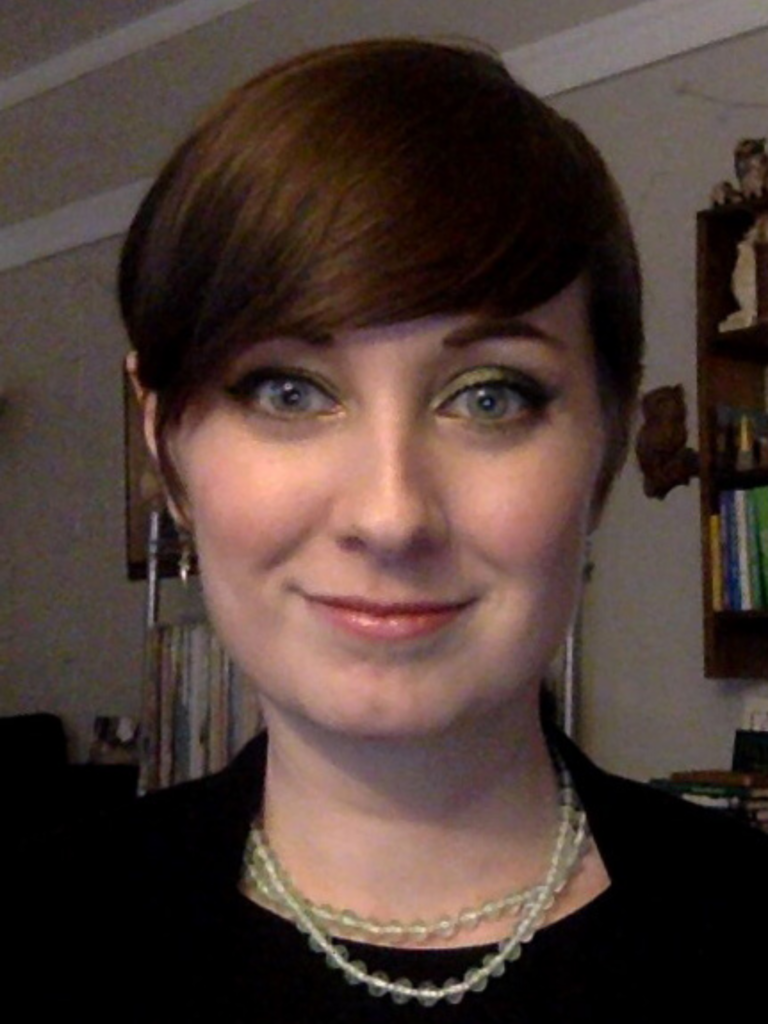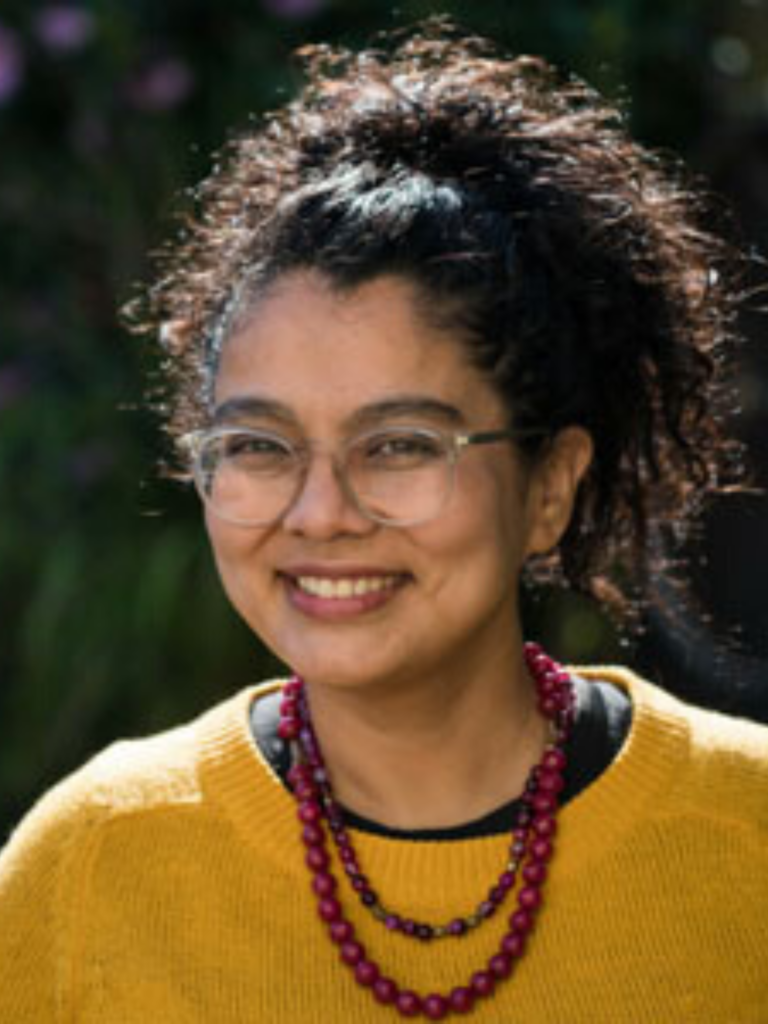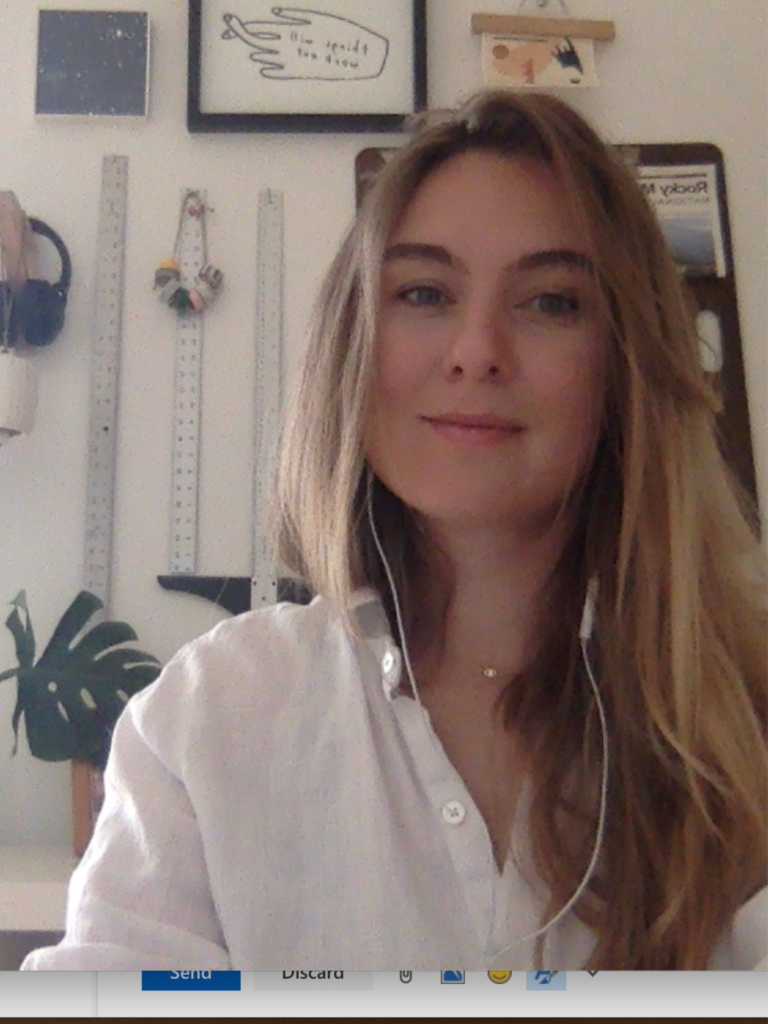DePaul University announced in mid-march that the 2020 spring quarter would transition to remote learning in response to COVID-19. Administrators and instructors quickly moved courses and entire departments into digital environments, rethinking everything from classroom discussion to professional development to accessibility.
We were able to catch up with three members of the WRD faculty/administration to get a behind the scenes look at what this transition has entailed.
Rethinking First-Year Writing
This quarter, there are 41 FYW courses running (WRD 103, 104 and 104x), being taught by 34 instructors. Following the news, First-Year Writing Program Director Dr. Erin Workman and Assistant Director Victoria Hohenzy had approximately two weeks to move the entire program to an online environment.

In this transition, Erin shared that some of the primary tasks included working with librarians to develop instruction modules for WRD 104, scheduling WRD-specific workshops on how to use D2L tools for writing instruction, and creating a Teaching First-Year Writing Remotely Resource Guide.
“We are fortunate that folks in writing studies and writing program administration have been active for years in developing pedagogically sound online writing instruction (OWI) resources,” Erin shared, “There were many existing resources from which to draw… The Google Doc that we created began with a version used at UPitt, and we revised it to reflect our local context and have continued adding information as we’ve learned about/developed more resources.”
This resource guide addresses topics such as alternatives for common face-to-face practices, such as student conferencing, peer review, and synchronous student discussion, as well as other considerations instructors should keep in mind, like accessibility and the possibility that students are accessing course materials with their smartphones or limited technology
“While moving all of the FYW courses to a remote model in such a short time frame is not an easy task, we have incredibly talented and dedicated faculty who worked to make it happen,” Victoria said. “I’m here to be a resource to our faculty, which is always an important part of my role, it just looks a bit different this quarter.”
Inside the Virtual Writing Classroom
In addition to speaking with FYW administrators, we also were able to get an “inside-the-classroom” perspective from instructor Dr. Lydia Saravia. This quarter, Lydia is teaching WRD 104, WRD 104x, and LSP 200, all classes she has taught previously, but which she has had to adjust and adapt to the online environment.

Lydia shared that her courses are being conducted asynchronously, not only because of Online Writing Instruction best practices, but because she “conducted a survey with students prior to the quarter beginning to see what their needs were, what their technology access would be, and to see time difference.”
“I want to be as aware of their time as I am aware of my own time.”
This time difference has been one of the primary struggles Lydia has faced in moving her course WRD 104x: Composition and Rhetoric II for Non-native English Speakers to remote instruction. “Half of the class went back home, so they are living in another country,” Lydia said. “I’ve had to rethink our U.S. technological tools: who has access to Google, Microsoft, Zoom? I have had to keep in mind the time difference.”
Looking forward, Lydia adds that this transition has highlighted considerations that instructors should continue to keep in mind. “In the future, I think we all need to be more aware of the technological challenges that impact students living outside of the U.S. Much of the material and information we have received has stated: use Google, use Zoom, etc. But it’s not that simple when some of our students live in countries where some of these are restricted.”
Maintaining Community
Maintaining community has been a big focus across all levels of administration and instruction. This has been important, not only within writing classrooms, but between WRD faculty as well. Both Erin and Victoria shared that having opportunities for FYW instructors to digitally come together has allowed them to collaborate, problem solve, and maintain connection.

“We are holding weekly one hour Q&A sessions for FYW instructors,” Erin said. “Those sessions are informal and conversation topics extend beyond FYW classes. We’ve held three sessions so far, and each has been well-attended by different instructors.
“They’re an open opportunity for FYW faculty to come say hello and talk about whatever is on their mind,” Victoria added. “It’s a way to be able to chat with other instructors about what’s going on in your classes, questions you may have, or ideas you want to share. Besides, it’s always just nice to see one another.”
Within the classroom, Lydia shares that maintaining a sense of community has been foundationally built into her course, and an emphasis on connection has been present from the first day of her courses. Some of Lydia’s community-building strategies include having students introduce themselves on the first day, individually conferencing with students throughout the quarter, and conducting peer review workshops.
In addition to this, Lydia has tried to build connection into her weekly course materials. Each week, instructional slides include a recap of the week before. “When possible, I reference students by name, pointing to the work they have submitted. When I respond to student posts, if they have similar ideas to one of their classmate’s, I will say, You might want to look at [insert name] post,” Lydia said. “I hope all of this is fostering some sense of connection.”
Advice for Students
Erin, Victoria, and Lydia were kind enough to show us a little bit behind the curtain of transitioning to remote instruction and emphasized the importance of asking for help and reaching out. The process for moving these courses into a virtual environment was not one that happened in a vacuum, and each highlighted the many ways they collaborated with other instructors, CTL faculty, and even students.
“Don’t be afraid to reach out for help,” Erin said. “Faculty are here to support you and want to do everything they can to help out in this difficult time. If you’re struggling with course work, deadlines, mental and/or emotional health, illness, personal responsibilities, etc. don’t hesitate to ask for help. Even if you’re not sure what to ask for, having a conversation with a sympathetic listener goes a long way.”
Victoria also stressed the importance of students creating structure where possible for themselves. “It’s easy to lose routines during this time, but having structure is so important and helpful,” she said. “Not only does giving yourself a schedule or a checklist help to keep things normalized and on track, but it also helps to protect and preserve time for yourself.”
“Beyond that: Be gentle with yourself. Ask for help when you need it. Get some sleep.”
Are you a student currently enrolled in the WRD major or master’s program? If you are interested in sharing your experiences with remote learning in the wake of COVID-19 for a blog post, please email graduate assistant Meg Palmer at meglizpalmer@gmail.com
